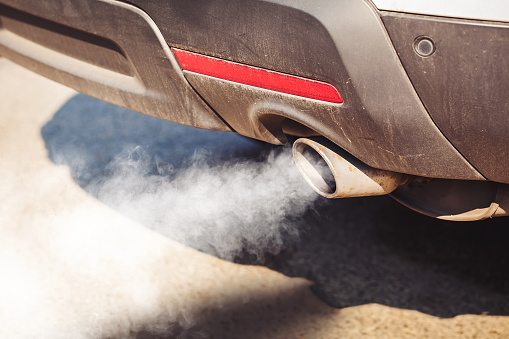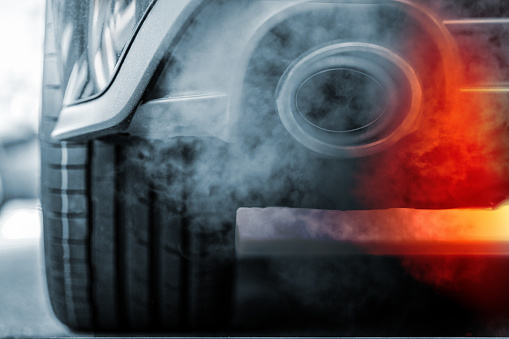November 11, 2024
Does exhaust pipe affect engine performance?
Yes, the exhaust pipe can affect engine performance. The exhaust system plays a critical role in a vehicle’s engine performance by helping to remove the gases produced during the combustion process. The exhaust pipe, in particular, is responsible for carrying the exhaust gases away from the engine and out of the vehicle.
A poorly designed or damaged exhaust pipe can restrict the flow of exhaust gases, which can cause a back pressure buildup in the engine. This back pressure can reduce engine power and torque output and also increase fuel consumption. Additionally, a damaged or leaking exhaust pipe can allow air to enter the engine, causing the engine to run poorly and potentially causing damage to internal components.
Therefore, it’s important to ensure that the exhaust pipe and entire exhaust system are functioning properly and are in good condition to maintain optimal engine performance.
Is an exhaust worth upgrading to?
Whether upgrading your exhaust system is worth it or not depends on your specific goals and priorities. Here are some factors to consider when deciding whether an exhaust upgrade is worth it:
- Performance improvement: Upgrading your exhaust system can improve your engine’s performance by increasing horsepower and torque output, reducing engine heat, and improving fuel efficiency.
- Sound: An upgraded exhaust system can give your car a more aggressive sound, which some drivers find appealing.
- Cost: Upgrading your exhaust system can be expensive, especially if you opt for high-end components.
- Legal requirements: Before upgrading your exhaust system, it’s essential to ensure that the modifications are legal and won’t cause you to fail emissions testing or violate noise ordinances.
Overall, if you prioritize improved performance and sound and are willing to invest in an upgraded exhaust system, it can be worth it. However, if cost is a concern or you’re not interested in a louder exhaust note, an exhaust upgrade may not be necessary. It’s essential to consider all the factors and weigh the pros and cons before making a decision.
Do you have to tune your car after installing exhaust?
It depends on the specific exhaust system and your car’s engine. Upgrading your exhaust system can change the engine’s airflow characteristics, which can affect the air-to-fuel ratio and other engine parameters. If the exhaust system you install significantly alters the airflow, a tuning adjustment may be necessary to optimize the engine’s performance and prevent any negative effects such as decreased fuel economy or increased emissions.
If you are installing an aftermarket exhaust that is designed to work with your car’s existing engine and ECU (engine control unit), you may not need a tune. However, if you are making significant modifications to the exhaust system, such as removing the catalytic converter, you will likely need to make tuning adjustments to ensure the engine runs optimally.
In general, it’s a good idea to consult with a professional mechanic or tuning specialist who has experience with your specific car and exhaust system to determine if a tune is necessary after installing a new exhaust. They can help you assess the performance gains and determine if any tuning adjustments are required to maximize your car’s potential.
What happens when a car needs a new exhaust?
When a car needs a new exhaust, it typically means that part or all of the exhaust system is damaged, worn out, or no longer functioning properly. Here’s what happens in the process:
Signs Your Car Needs a New Exhaust
- Loud Engine Noise: A damaged exhaust, especially the muffler, often causes loud or unusual noises.
- Decreased Fuel Efficiency: A failing exhaust system can reduce engine efficiency, increasing fuel consumption.
- Visible Damage: Corrosion, holes, or cracks in the exhaust pipes.
- Strong Exhaust Odor: If exhaust gases are leaking, you may notice a strong smell inside or around the car.
- Failed Emissions Test: A malfunctioning exhaust system can cause excessive emissions.
What Happens When Replacing the Exhaust
- Inspection
- A mechanic will inspect the exhaust system to determine which parts need replacement.
- Common components include the muffler, catalytic converter, exhaust pipes, or resonator.
- Removing the Old Exhaust
- Rusted or damaged components are carefully detached.
- Corroded bolts or clamps may need cutting or special tools to remove.
- Installing the New Exhaust
- The new exhaust components are securely mounted and connected using bolts, clamps, and gaskets.
- High-temperature sealant may be used to prevent leaks.
- Testing the System
- After installation, the mechanic will start the engine to check for leaks, proper alignment, and noise levels.
Cost of Replacing an Exhaust
- Cost Range: $300 to $1,200, depending on the extent of repairs. Replacing a catalytic converter can cost $1,000 or more due to its expensive materials (like platinum).
- Labor Costs: Typically $50 to $150 per hour, depending on the complexity and location.
Importance of Replacing a Damaged Exhaust
- Safety: Prevents harmful gases (like carbon monoxide) from leaking into the cabin.
- Performance: Maintains engine efficiency and optimal power output.
- Emissions Compliance: Ensures your car meets environmental regulations.
- Noise Reduction: Restores quieter operation.
Timely replacement of a damaged exhaust is essential for both your safety and your car’s overall health. Consult a mechanic for an accurate diagnosis and cost estimate.


